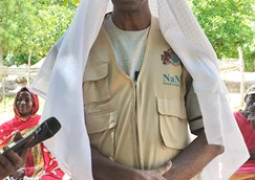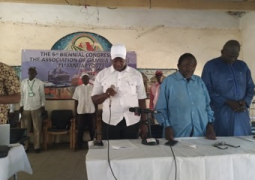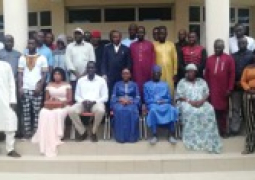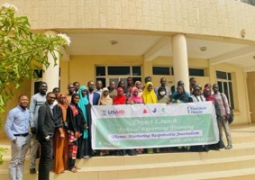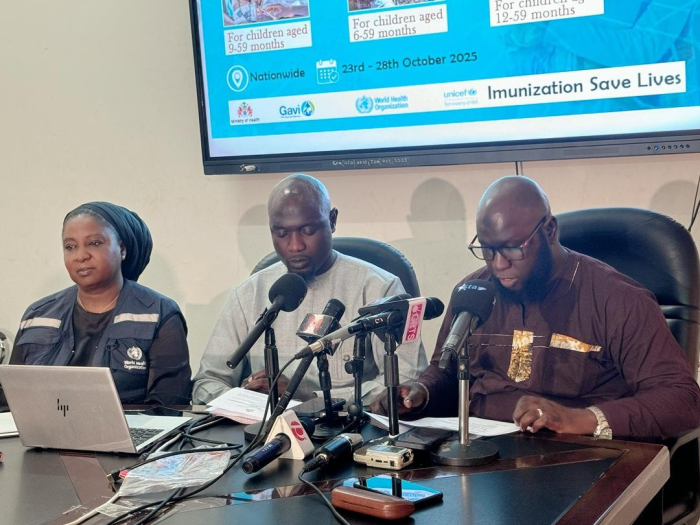
This forthcoming campaign targets all children aged 9 to 59 months for the Measles-Rubella Vaccination; Children aged 6 to 59 months for Vitamin A Supplementation and children aged 12 to 59 months for deworming tablets (Mebendazone). Also, children aged 0 to 59 months will be issued vaccines as part of their selected routine vaccines they may have missed during their regular immunisation schedule.
At a media briefing held on Tuesday at the Central Medical Store, Dr. Saharu Kanteh, senior programme officer, Expanded Programme on Immunization (EPI), revealed that this campaign forms part of their national efforts to strengthen child health and prevent outbreaks of measles and rubella, two highly contagious, but preventable diseases that continues to threaten the lives of children.
Dr. Kanteh revealed that globally, measles remains one of the leading causes of vaccine-preventable deaths among children, despite the availability of a safe and effective vaccine.
"In 2023 alone, over 9 million cases and 136,000 deaths were reported worldwide, mostly among unvaccinated children. Rubella, though usually mild, can cause serious birth defects known as Congenital Rubella Syndrome (CRS) when infection occurs during pregnancy."
While routine immunisation coverage remains high in The Gambia, officials say the country experienced two episodes of measles outbreak in 2025, the first in April and the second in July; both in the Western 1 Region.
"A total of nine confirmed positive cases were recorded, thankfully with no deaths reported. However, our national assessment indicates that if urgent action is not taken, these sporadic cases could escalate into a nationwide outbreak with dire consequences. It is for this reason that the Ministry with support from partners is conducting this national MR Campaign to boost immunity among our children and prevent future outbreak."
Also speaking, Sidat Fofana, programme manager, Expanded Programme on Imunization, described immunisation as very important for the Ministry of Health authorities in view of the fact that the disease is dangerous.
"It kills and if one is lucky, you will be disabled forever. So, the simplest thing to prevent it is to take vaccination. That's why we are preparing to organise a nationwide campaign to vaccinate all children between the ages of 9 to 59 months."
Fofana explained that the disease has no boundary and that the most difficult aspect of measles is ‘if you vaccinate every 100 children, naturally, 15% of them will not come back."
He talked about the consequence of this life-threatening disease, pointing out that this is very dangerous for the health of the children of this country.
"Government is out to make sure that we protect children from this dangerous disease so that our children can live happily. If we have so many children in this country suffering from measles, maybe suffering dumbness, blindness, and so on, they are going to be liabilities. And the country will not stand as a viable state."
Oumie Jagne, Immunization Officer at WHO, expressed similar sentiments.
She assured all the caregivers that the vaccines are safe and should be given to every child between the ages of nine to 59 months, irrespective of their previous vaccination status.
"So, the UN agencies work very, very closely with the Ministry of Health in coordination, technical support, and financially to ensure that all the vaccines are given in a safe manner."


